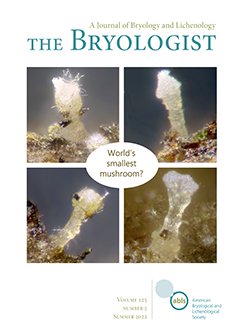Herbicides are used extensively to control invasive plants in natural areas but, herbicide application often has undesired effects on non-target plants. Using a lab bioassay, we investigated the impacts of glyphosate and two bioherbicides (cinnamon plus clove oil, and pelargonic acid) on the establishment of bryophyte and fern propagules from an urban woodland park soil propagule bank. Mosses were slower to emerge and establish in soil treated with cinnamon plus clove oil than soil treated with pelargonic acid or glyphosate. Fern gametophyte establishment was negatively affected by glyphosate but not by the two bioherbicides. Results from this study confirmed those of a previous field study indicating that an herbicide containing pelargonic acid could be useful for controlling non-native plants in locations suspected of harboring high biodiversity in soil propagule banks.
How to translate text using browser tools
25 May 2022
Emergence and establishment of mosses and ferns from spore banks after exposure to glyphosate and two bioherbicides
Linda C. Fuselier,
Margaret M. Carreiro
ACCESS THE FULL ARTICLE

The Bryologist
Vol. 125 • No. 2
Summer 2022
Vol. 125 • No. 2
Summer 2022
cinnamon oil
clove oil
ferns
moss
organic herbicides
pelargonic acid
Pre-emergent herbicide effects




